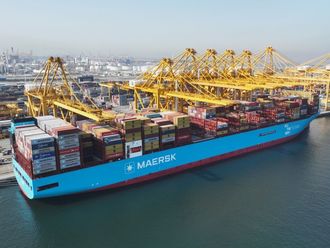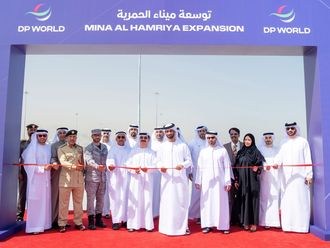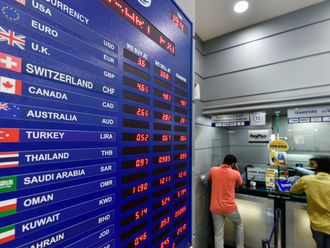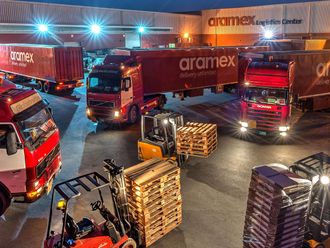Dubai: The equity markets in the Gulf region took a hit on Sunday, with the Dubai index leading the decline, two days after crude oil tumbled to its lowest level in more than four years.
The Dubai Financial Market General Index fell as much as 6.71 per cent at 4,192.70, before closing 4.74 per cent lower at 4,281.43.
“The main catalyst for the fall was the crude oil after the Opec meeting. The local equity markets have reacted very poorly,” said Sebastien Henin, head of asset management at The National Investor, which manages the portfolio of Dh370 million.
“In coming days, markets could be under pressure if crude prices stay at $70 ber barrel,” Henin said.
Brent crude fell to its lowest level in more than four years as the producer group Opec declined to cut production, maintaining a status quo despite huge supplies.
Brent crude settled at $70.15 per barrel, its lowest since May 2010. Prices are down 13 per cent this week, the biggest weekly loss since May 2011. Brent has decreased 18 per cent this month, the worst performance since October 2008 and is down 37 per cent in 2014.
On the broader Dubai index, out of a total of 33 shares traded on the exchange, shares of 30 companies declined, while shares of two companies were steady.
In Abu Dhabi, the ADX general index ended 2.63 per cent lower at 4,671.72. Out of a total of 35 companies, shares of nine companies rose, while 24 of them declined and the other two remained steady.
Saudi’s Tadwul All Share index fell as much as 6.3 per cent, before ending 4.76 per cent lower at 8,624.89.
“Saudi markets would be adversely impacted in coming session as there would be a direct impact on government’s earnings and spending,” Henin said.
Saudi Basic Industries Corp, the world’s largest petrochemicals producer, fell 9.89 per cent, the steepest decline since May 2010, to 88.25 riyals.
Saudi Arabia, which is the biggest Opec producer and the largest Arab economy, might have to cut its budgets due to falling crude oil prices.
In a move to diversify the economy, the Capital Market Authority proposed rules in August for opening the market to direct investment sometime in the first half of 2015, including a 10 per cent cap on combined foreign ownership of the market’s value. At present, foreigners are limited to investing indirectly through swaps and exchange-traded funds.
“There was panic selling in other markets in the GCC,” Henin said.
Elsewhere in the region, the Muscat Secuities MSM 30 Index shed as much as 6.2 per cent, while Qatar Exchange Index declined to a low of 4.82 per cent.












